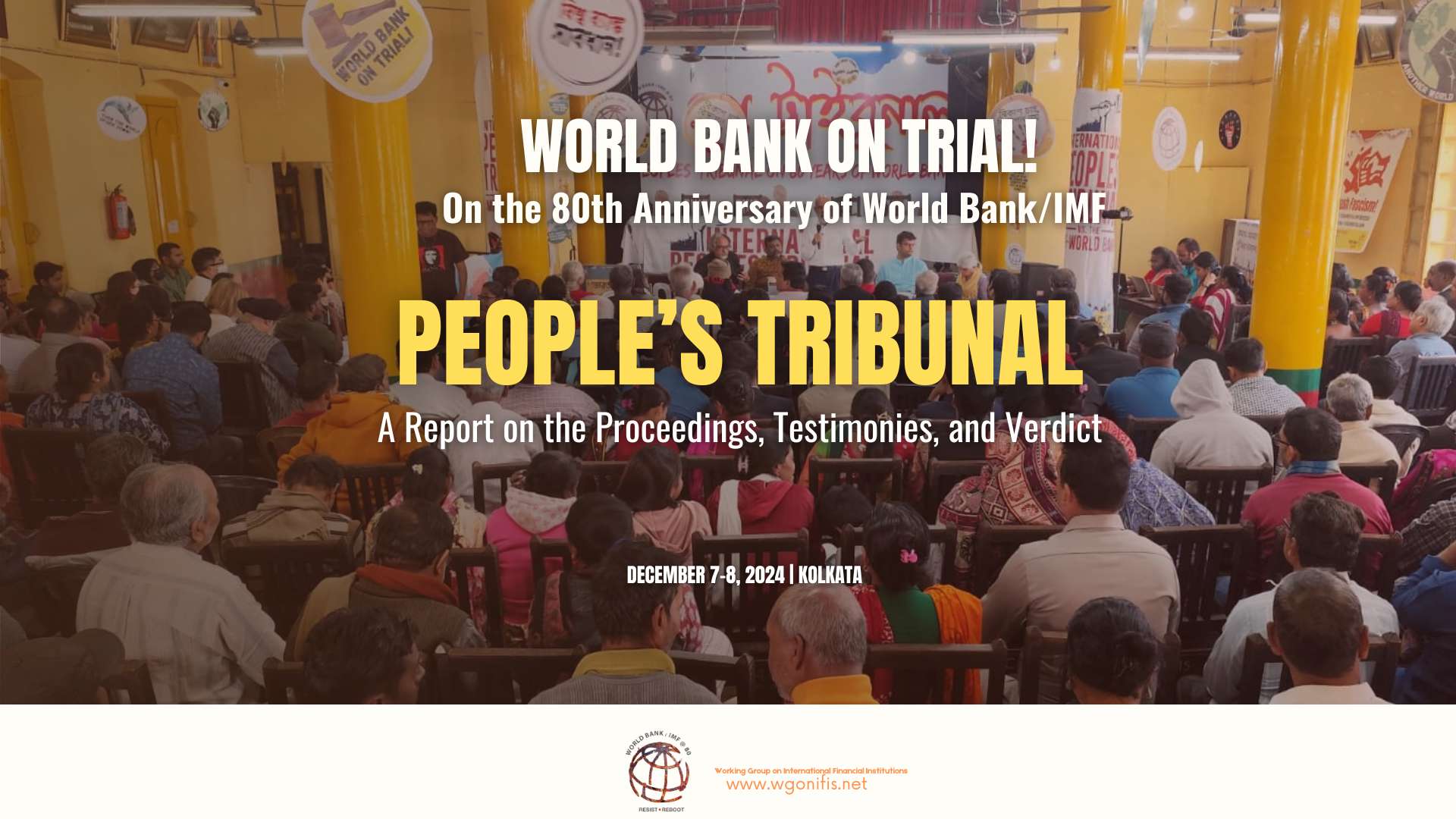World Bank on Trial! | On the 80th Anniversary of World Bank/IMF
 The Independent People’s Tribunal (IPT) on the World Bank @ 80, convened in Kolkata in December 2024, critically examined the World Bank’s pervasive role in shaping India’s economic, social, and environmental landscape. Organised by the Working Group on International Financial Institutions—comprising nearly 80 organisations with support from regional and national networks—the tribunal marked 80 years of the Bretton Woods Institutions by offering a platform for civil society, affected communities, and experts to hold the World Bank accountable. As India remains the Bank’s largest borrower, the tribunal revisited its long history of interventions to question whether its development model has truly served people or deepened inequality and exclusion.
The Independent People’s Tribunal (IPT) on the World Bank @ 80, convened in Kolkata in December 2024, critically examined the World Bank’s pervasive role in shaping India’s economic, social, and environmental landscape. Organised by the Working Group on International Financial Institutions—comprising nearly 80 organisations with support from regional and national networks—the tribunal marked 80 years of the Bretton Woods Institutions by offering a platform for civil society, affected communities, and experts to hold the World Bank accountable. As India remains the Bank’s largest borrower, the tribunal revisited its long history of interventions to question whether its development model has truly served people or deepened inequality and exclusion.
Held over two days, the IPT brought together 30 speakers across five thematic sessions, with testimonies from affected communities, civil society representatives, and researchers. The sessions explored the World Bank’s historical legacy in India, its influence on key public sectors, its role in weakening democratic and labour protections, and the contradictions in its climate finance agenda. Cases such as the Sardar Sarovar Dam, Tata Mundra Power Project, and Mumbai Urban Transport Project illustrated the widespread displacement, environmental degradation, and erosion of public services resulting from Bank-financed projects. Representatives from the World Bank were invited to respond but declined to participate.
The tribunal formed part of a global movement of people’s tribunals challenging the unchecked power of international financial institutions, following the Manila tribunal in October 2024 and preceding one in Nepal in March 2025. The jury’s report, based on testimonies and expert analyses, presents a comprehensive assessment of the Bank’s impact on India’s political economy and climate agenda. It concludes with key findings and recommendations calling for transparency, democratic accountability, and development models that prioritise social justice, environmental sustainability, and the rights of affected communities over corporate and financial interests.
The report contains the following chapters:
- World Bank’s Funding Patterns in India
- The Direct Fallout of World Bank Projects
- Shaping India’s Political Economy
- World Bank and the Climate Paradox
- World Bank’s Support to Authoritarian Regimes
- Resistance and Advocacy
- Concluding Reflections

